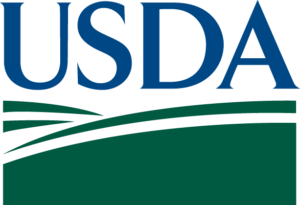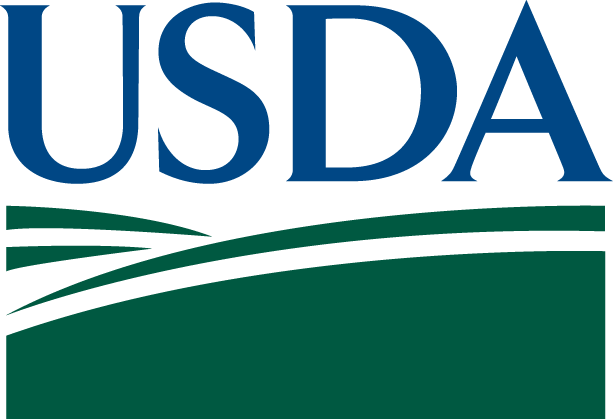 On Monday, USDA Agricultural Marketing Service (“AMS”) released a proposed rule governing competition in the livestock and poultry industries. This was the latest iteration of a rule originally stemming from language in the 2008 Farm Bill, which ordered AMS to establish criteria to be used in determining “whether an undue or unreasonable preference or advantage has occurred” in violation of the Packers and Stockyards Act. [1]
On Monday, USDA Agricultural Marketing Service (“AMS”) released a proposed rule governing competition in the livestock and poultry industries. This was the latest iteration of a rule originally stemming from language in the 2008 Farm Bill, which ordered AMS to establish criteria to be used in determining “whether an undue or unreasonable preference or advantage has occurred” in violation of the Packers and Stockyards Act. [1]
The Packers and Stockyards Act (“PSA”), is a law that is meant to protect consumers and producers by preventing monopolies and maintaining healthy competition between livestock and poultry buying companies. Its prohibitions apply to people or businesses engaged in the business of marketing livestock, meat, and poultry in interstate or foreign commerce- packers, swine contractors, stockyard owners, market agencies, dealers, and live poultry dealers. It does not apply to someone who is marketing their own livestock or a producer buying livestock for their own stocking or feeding purposes, and does not apply to producers raising hens that lay table eggs.
PSA includes some provisions that are directly focused on competition, while others protect producers in other ways. Some of these other protections include 1) a requirement that poultry growers may observe the weighing and recording procedures of their birds; 2) a requirement that stockyards register with the government, maintain accurate weights, and pay shippers promptly; 3) a requirement that certain market agencies and meat packers maintain a bond to ensure producer payment; and 4) statutory trust protection for producers in the event of nonpayment. In fact, the trust protection was recently expanded, in 2020, when Congress added livestock dealers to the list of entities that give unpaid sellers first priority rights to a dealer’s livestock-related assets in the case of nonpayment.
The Biden administration has taken a special interest in protecting competition in the marketplace, in part through the PSA. AMS released a proposal earlier in the year that would require additional disclosures to poultry growers involved in the “tournament” system, which ranks growers against each other in determining the amount of pay that is received.
Proposed Rule: Competition and Market Integrity
This week’s proposal is the second of the year, and it would add a new sub-part to the regulations for administering the requirements of the PSA. “Subpart O” includes definitions of who is affected by the proposal, protected practices by “covered producers,” specific prohibited practices by “regulated entities” in situations involving market vulnerable individuals and cooperatives, and specific prohibited practices by regulated entities engaged in contracting.
Swine contractors, live poultry dealers and packers, people or businesses who purchase livestock or poultry, are called “regulated entities.” Protected parties include “livestock producers”, which the new proposal defines as “any person engaged in the raising and caring for livestock by the producer or another person, whether the livestock is owned by the producer or by another person, but not an employee of the owner of the livestock.” This definition is intended to encompass entities throughout the chain of production from cow-calf to stockers and feed lots. The new definition for “covered producer” includes and poultry growers (as previously defined) as well as livestock producers as defined in the new rule. In other words, “covered producer” is an umbrella term for all entities that are protected by the new rule.
This week’s proposed rule protects covered producers from retaliation based on their participation in protected activities. For example, it prohibits a regulated entity from taking adverse action based on a swine production contract grower’s testimony in front of a Congressional committee, a stocker operator’s membership in a grower association/union, or a poultry grower’s discussion of potential contracts with several integrators before making a decision.
Another part of the proposed rule prohibits specific actions against covered producers based on their status as a “market vulnerable individual.” According to the proposed regulation, that means a “person who is a member, or who a regulated entity perceives to be a member, of a group whose members have been subjected to, or are at heightened risk of, adverse treatment because of their identity as a member or perceived member of the group without regard to their individual qualities.” According to USDA’s press release announcing the rule, it would prohibit adverse actions against individuals based on their race, gender, sexual orientation, and religious affiliation. Prohibited actions include events such as offering less favorable contract terms, enforcing existing contracts differently than those of other groups or termination or non-renewal of a contract.
A final part of the proposed rule prohibits regulated entities from making false or misleading statements during the contract process- when negotiating the contract, fulfilling the contract, or terminating a contract, or when giving a reason that the regulated entity is refusing to sign the contract. For example, this section prohibits a live poultry dealer from making a false statement in order to convince a covered producer to sign a contract. AMS outlines other examples of false and misleading statements in the preface to the rule, here.
Next steps
The proposed rule is just that- proposed. From now until December 2, 2022, USDA will accept comments from anyone who would like to share their thoughts about the proposal. If you would like to make a comment, click here to do so electronically. You can also mail in your comments to the address listed here. It’s important to note that all comments will be published and publicly available. If you want to comment anonymously, you can do so by entering N/A in any identifying fields.
You can make comments on the proposal generally, but AMS has also framed numerous questions in which they are specifically seeking comments. This includes questions regarding the scope of the definition of “market vulnerable producers” and “covered producer”. Additional questions are available here for the proposal to prohibit undue prejudices and here for the section regarding false and deceptive practices.
After the comment period closes, AMS will review all comments before publishing the final rule. The final rule will address the comments that have been received and explain why AMS made the choices they did in finalizing the text.
Further, the comment period for the first rule (regarding the tournament system) has already closed, so the comment review, analysis and drafting of a final rule has already begun. Finally, USDA has stated its intent to propose a third PSA rule in the months ahead. According to the press release, the third rule will codify this administration’s position that injury to competition is not required when bringing an action under §202 of the PSA.
[1] 7 U.S.C. 192(b) forbids covered entities from being able to: “Make or give any undue or unreasonable preference or advantage to any particular person or locality in any respect, or subject any particular person or locality to any undue or unreasonable prejudice or disadvantage in any respect[.]” The 2008 FB focused on the first part of the section, USDA is focusing on the second.
